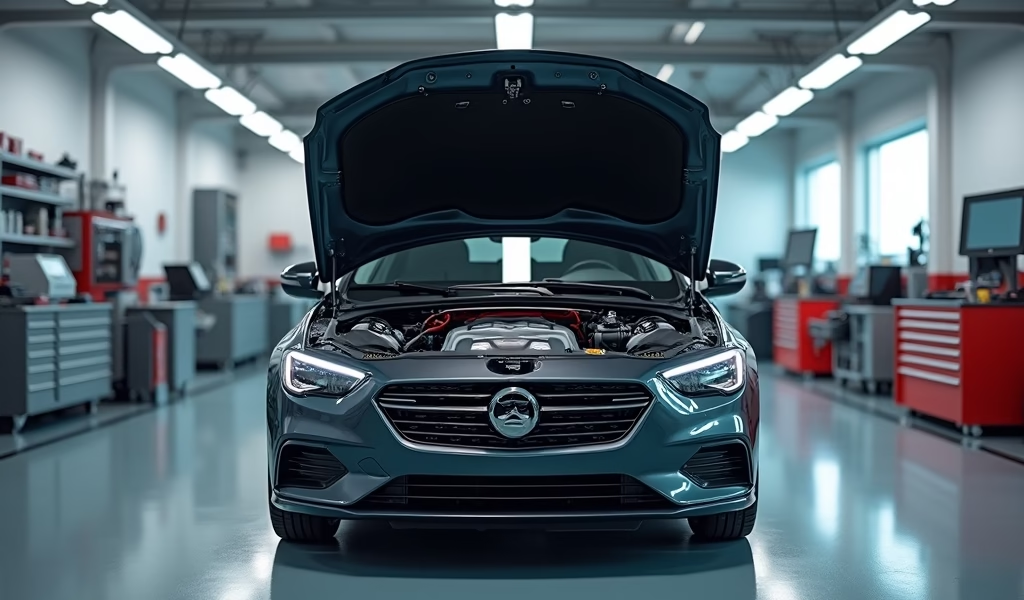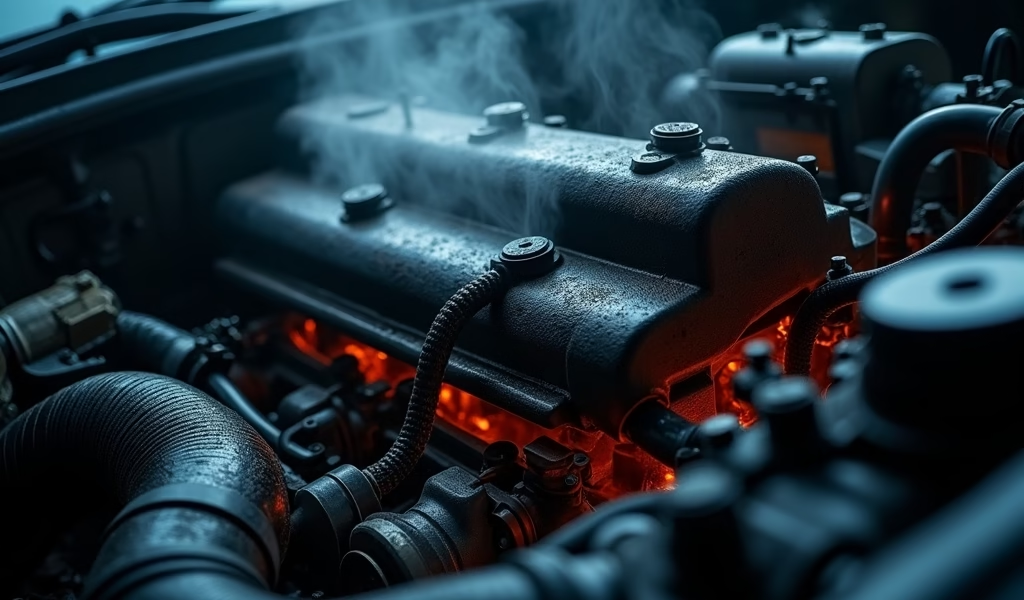Overview
This article provides five essential engine care tips that are particularly important after a car accident, including regular fluid checks, listening for unusual sounds, keeping the engine clean, addressing warning lights, and scheduling professional inspections. It emphasizes the importance of both mechanical attention and legal protection following a collision, noting that hidden engine damage can develop over time even after minor accidents.
Table of Contents
- Understanding Car Accidents and Their Impact on Your Vehicle
- The Importance of Legal Protection After a Car Crash
- Engine Care Tip #1: Regular Oil Changes and Fluid Checks
- Engine Care Tip #2: Listen to Your Engine
- Engine Care Tip #3: Keep Your Engine Clean
- Engine Care Tip #4: Don’t Ignore the Check Engine Light
- Engine Care Tip #5: Regular Professional Inspections
- Caring for Your Engine After an Accident
- Conclusion
- Frequently Asked Questions
Understanding Car Accidents and Their Impact on Your Vehicle
Car accidents happen in the blink of an eye, but their impact on your vehicle—especially the engine—can last much longer. As someone who’s spent 20 years under the hood, I’ve seen firsthand how crashes can cause hidden damage that many drivers miss. When you’re involved in a collision, your first thought might be about your physical well-being or the visible damage to your car’s exterior. However, the force of impact can send shockwaves through your entire vehicle, potentially affecting crucial engine components.
After a crash, consulting with a lawyer for car crash cases is crucial for protecting your legal interests, but equally important is understanding how to care for your engine. Even minor fender benders can knock components out of alignment or cause subtle damage that might not be immediately apparent. Left unchecked, these issues can develop into costly problems down the road.
Today, I’m sharing five essential engine care tips that I’ve recommended to countless drivers over the years. These practices are especially important if you’ve recently been in an accident, but they’re valuable preventive measures for every vehicle owner. By following these guidelines, you’ll not only extend your engine’s life but potentially save thousands in repair costs.
The Importance of Legal Protection After a Car Crash
Before diving into engine care, let’s talk briefly about protecting yourself legally after an accident. The moments following a collision are chaotic, and decisions made then can impact both your legal standing and your vehicle’s future. A qualified car crash attorney can help navigate insurance claims, ensure proper documentation of all damages (including non-obvious engine issues), and fight for compensation that covers all necessary repairs.
Many drivers don’t realize that insurance companies often push for quick settlements that may not account for underlying mechanical damage. That seemingly minor collision could have knocked your engine mounts loose or caused a hairline crack in a crucial component—problems that might not manifest until weeks or months later. Having legal representation ensures these potential issues are considered in your claim.
Remember, the true cost of an accident extends beyond the immediate visible damage. A good attorney will help ensure that all potential repair needs are documented and covered. Now, let’s look at how you can protect your engine both before and after an accident.

Engine Care Tip #1: Regular Oil Changes and Fluid Checks
The lifeblood of your engine is its oil. I can’t stress this enough: regular oil changes are the single most important maintenance task for engine longevity. Engine oil doesn’t just lubricate moving parts—it carries away heat, holds contaminants in suspension, and helps seal the gap between piston rings and cylinder walls. When oil breaks down or becomes contaminated, all these functions suffer.
After an accident, even a minor one, checking your oil is absolutely critical. Impact forces can sometimes cause oil pan damage or seal leaks that aren’t immediately obvious. I recommend checking your oil level within a few days after any collision, then again a week later to ensure you’re not losing oil.
While you’re at it, don’t neglect other vital fluids. Your engine cooling system relies on coolant to prevent overheating. Transmission fluid, brake fluid, and power steering fluid all play crucial roles in your vehicle’s performance and safety. According to a study by AAA, proper fluid maintenance can extend engine life by up to 50%.
Here’s a simple fluid check routine I recommend:
- Check engine oil level once a week (when the engine is cool)
- Inspect coolant level in the reservoir monthly
- Look for fluid leaks on your garage floor or driveway regularly
- Have all fluids inspected after any accident, no matter how minor
- Follow your manufacturer’s recommended fluid change intervals
Remember, these checks become even more critical if you’ve been in an accident. The forces involved can compromise seals and create leaks that might not be immediately apparent.
Engine Care Tip #2: Listen to Your Engine
Your engine talks to you—you just need to learn its language. After 20 years working on vehicles, I’ve developed an ear for the subtle sounds that indicate potential problems. You don’t need to be a mechanic to develop this skill; just pay attention to what’s normal for your particular vehicle.
Any new noise after an accident deserves immediate attention. Knocking, ticking, grinding, or whining sounds can indicate damage to bearings, belts, or other critical components. Even if your insurance adjuster has cleared your vehicle, these sounds shouldn’t be ignored. Sometimes impact damage only becomes apparent after you’ve driven the vehicle for a few days.
I had a customer whose car was in a moderate front-end collision. The insurance company declared it repaired after body work, but she noticed a subtle ticking sound at idle that hadn’t been there before. When she brought it in, we discovered a slightly bent pulley that was causing a belt to track improperly. Left unaddressed, it would have eventually caused the belt to fail, potentially leading to much more extensive damage.
Modern engines should run relatively quietly and smoothly. If you notice any of these sounds, especially after an accident, have your vehicle checked promptly:
- Rhythmic ticking or knocking, particularly when accelerating
- High-pitched whine or whistle
- Grinding noises when starting the engine
- Rumbling or vibration that wasn’t present before
- Any dramatic change in the sound of your engine
These sounds are your engine’s way of calling for help. Don’t wait until a small problem becomes a major repair—or worse, leaves you stranded.
Engine Care Tip #3: Keep Your Engine Clean
A clean engine isn’t just about aesthetics—it’s about function and longevity. Over my years in the shop, I’ve seen countless problems that could have been prevented or caught early with better engine cleanliness. Accumulated dirt, oil, and debris can mask leaks, accelerate wear, and even cause overheating by insulating components that need to release heat.
After an accident, keeping your engine clean becomes even more important as it allows you to spot any new leaks or issues that might develop. Crash damage can sometimes cause slow fluid leaks that are easy to miss if your engine bay is already dirty.
You don’t need specialized knowledge to perform basic engine cleaning. Here’s a simple approach:
- With the engine cool, use compressed air to blow away loose debris
- For stubborn dirt, a gentle degreaser and soft brush can work wonders
- Pay special attention to the areas around hoses and connections
- Never use a high-pressure washer directly on engine components
- After cleaning, run the engine briefly to help dry any remaining moisture
A clean engine compartment makes routine inspections more effective and helps your mechanic spot potential issues before they become serious problems. If you’ve recently been in an accident, this simple practice can help you monitor your vehicle’s recovery and catch any developing issues early.
Remember that if you’ve been in an accident, an auto crash attorney may advise documenting the condition of your engine compartment as part of your claim evidence. Clear photos of a clean engine bay can help establish the pre- and post-accident condition of your vehicle.

Engine Care Tip #4: Don’t Ignore the Check Engine Light
That little amber light on your dashboard is there for a reason, and it’s not just to create anxiety! The check engine light (CEL) is your vehicle’s way of telling you that something needs attention. In my two decades as a mechanic, I’ve seen too many people ignore this warning, often leading to more expensive repairs down the road.
After an accident, your check engine light might illuminate due to impact damage that affected sensors or components. According to Car and Driver research, about 10% of vehicles on the road are driving with an active check engine light. Many of these represent simple fixes that, if left unaddressed, can lead to major problems.
Modern vehicles have sophisticated diagnostic systems that monitor dozens of parameters. When something falls outside acceptable ranges, the light comes on. Common causes include:
- Loose or damaged gas cap (yes, something this simple can trigger the light!)
- Oxygen sensor issues (often a relatively inexpensive fix)
- Catalytic converter problems (more expensive, but critical to address)
- Mass airflow sensor malfunctions (affecting fuel efficiency)
- Spark plug or ignition coil issues (impacting performance and efficiency)
If your check engine light comes on after an accident—even a minor fender bender—don’t assume it’s unrelated. The forces involved in a collision can displace sensors or create wiring issues that trigger the system. Most auto parts stores offer free diagnostic code reading, or you can invest in an inexpensive OBD-II scanner to check codes yourself.
Remember: a solid check engine light typically indicates a non-emergency issue that should be addressed soon, while a flashing check engine light signals a severe problem that could damage your catalytic converter or other components. If you see a flashing light, reduce speed and have your vehicle towed to a repair shop.
Engine Care Tip #5: Regular Professional Inspections
Even with diligent home maintenance, there’s no substitute for professional eyes on your engine. As a mechanic, I’ve found countless developing issues during routine inspections that vehicle owners had no idea existed. These discoveries often save my customers from breakdowns and more expensive repairs down the road.
After any accident, professional inspection becomes even more critical. Collision forces can cause subtle damage that isn’t immediately apparent but can develop into serious problems over time. Engine mounts, for instance, absorb impact forces and can develop hairline cracks that gradually worsen with normal driving.
I recommend scheduling professional inspections:
- Every 15,000 miles for newer vehicles in good condition
- Every 7,500-10,000 miles for vehicles over 100,000 miles
- After any accident, regardless of severity
- Whenever you notice any change in performance, sound, or handling
- Before and after long road trips
A thorough professional inspection should include checking all fluids, belts, hoses, mounts, and accessible components. Many shops offer free or low-cost basic inspections that can catch developing issues. These preventive checks are among the most cost-effective ways to extend your engine’s life and avoid unexpected breakdowns.
If you’ve recently been in an accident, make sure your insurance claim includes a professional mechanical inspection. Many policies cover this, but you may need to specifically request it. A qualified legal professional can help ensure your policy benefits are fully utilized.
Caring for Your Engine After an Accident
The moments and days following an accident are critical for your engine’s long-term health. While visible body damage gets immediate attention, the mechanical components that power your vehicle deserve equal consideration. Even if your car seems to be running normally after a collision, hidden damage could be developing.
If you’ve recently been in an accident, I strongly recommend this post-collision checklist:
- Have fluids checked immediately, especially if the impact was to the front of your vehicle
- Request a computerized diagnostic scan, even if no warning lights are illuminated
- Check for any new noises, vibrations, or handling issues during the first few drives
- Monitor your parking spot for fluid leaks that may develop days after the incident
- Schedule a follow-up inspection about 500 miles after the accident
Insurance companies sometimes focus primarily on visible damage, but mechanical issues can be equally important. Document any changes in your vehicle’s performance after an accident—this information may be valuable for both your mechanic and your lawyer if you need to file additional claims.
Remember that some engine damage doesn’t manifest immediately. Be especially vigilant about monitoring your vehicle’s performance in the weeks following an accident. Pay attention to starting behavior, idle quality, acceleration response, and fuel efficiency. Any changes could indicate accident-related issues that need attention.
Conclusion
Your engine is the heart of your vehicle, and like any heart, it needs proper care to function at its best. The five tips we’ve covered—regular fluid maintenance, listening to your engine, keeping it clean, addressing warning lights, and scheduling professional inspections—form the foundation of good engine care. These practices become even more crucial after you’ve been in an accident.
If you’ve experienced a car crash, remember that protecting your vehicle’s mechanical health is just as important as addressing visible damage. Working with both a trusted mechanic and a qualified lawyer for car crash cases ensures that all aspects of your vehicle’s recovery are properly handled. The right legal representation can help ensure that your insurance claim covers all necessary repairs, not just the obvious ones.
By implementing these engine care practices, you’re not just extending the life of your current vehicle—you’re developing habits that will serve you well throughout your driving life. Cars may change, but the fundamentals of good engine care remain constant.
Remember: your engine works hard for you every day. A little attentiveness and preventive maintenance will be rewarded with years of reliable service. And if you ever do find yourself dealing with the aftermath of an accident, knowing these principles will help ensure your vehicle makes a complete recovery.
Frequently Asked Questions
How soon after a car crash should I contact a lawyer?
You should contact a lawyer for car crash cases as soon as possible after the accident, ideally within the first 24-48 hours. Early legal consultation ensures critical evidence is preserved and your rights are protected from the beginning.
Can minor accidents cause serious engine damage?
Yes, even minor collisions can cause serious engine damage that may not be immediately apparent. Impact forces can affect engine mounts, cooling systems, and internal components that might fail days or weeks after the accident.
Will my insurance cover engine damage after an accident?
Most comprehensive auto insurance policies cover accident-related engine damage, but coverage depends on your specific policy terms. A qualified car crash attorney can help ensure all legitimate engine damage is included in your claim.
How can I tell if my engine was damaged in a car accident?
Watch for warning signs like new noises, vibrations, fluid leaks, warning lights, or changes in performance. Have a professional inspection performed even if the vehicle seems to be running normally after an accident.
Should I continue driving my car after an accident if it seems fine?
If your car starts and runs normally after a minor accident, it’s generally safe to drive it to a repair facility for inspection. However, if you notice any unusual sounds, vibrations, warning lights, or handling issues, it’s best to have the vehicle towed.

